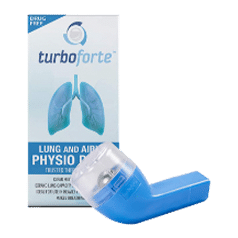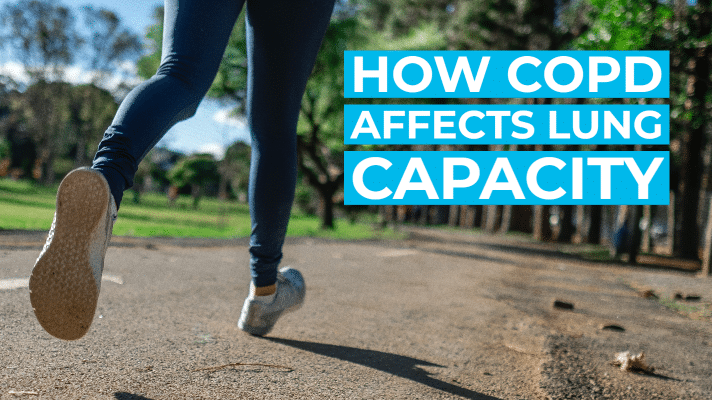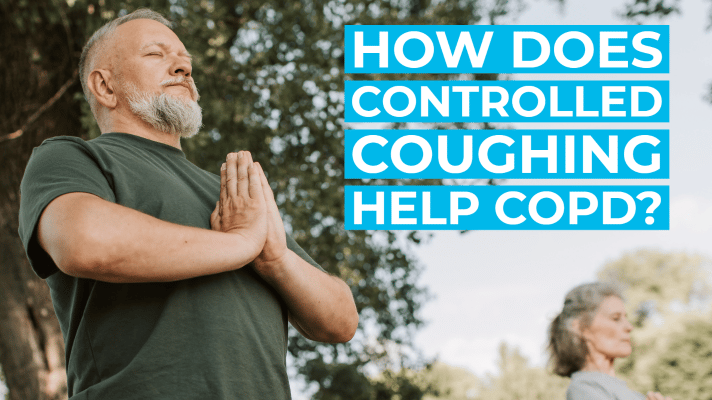
Emphysema is a form of COPD (chronic obstructive pulmonary disease), a group of lung conditions that affect the respiratory process. Emphysema is a progressive disease where the millions of air sacs in your lungs are damaged or ruptured, causing air to become trapped in the lungs. Normally these air sacs are elastic and stretchy, but Emphysema breaks them down over time to lose their shape and become floppy.
This trapped air makes the lungs become bigger (hyperinflated) and it is much harder for the breathing muscles around your chest to get air in and your lungs, making you feel breathless. The other main type of COPD is chronic bronchitis which you can read more about here.
What are some symptoms of Emphysema?
- Wheezing, shortness of breath
- Breathing difficulties, especially when exercising
- A cough, producing mucus
- Tightness in the chest
- Blueish or purplish fingertips from lack of oxygen (if this occurs, seek medical attention immediately)
How do you get Emphysema?
The cause of Emphysema is usually long-term irritants to the lungs such as cigarette smoke which can break down the air sac linings causing irreparable damage. There is still ongoing research as to why some smokers contract emphysema and others do not.
Occasionally, genetics can be a factor in cases of Emphysema through an Alpha-1 antitrypsin deficiency. Alpha-1 antitrypsin is a natural protein that circulates in the blood system and keeps white blood cells from damaging tissue. Over time, people with a severe Alpha-1 antitrypsin deficiency will likely develop emphysema, especially if the deficiency is compounded with smoking.
How do you treat it?
While there is no cure as of current, treatment involves assisting to manage, help to slow progress, and to relieve the symptoms across the lifetime. Avoiding exposure to environmental or behavioral triggers like cigarette smoke, dust, and fumes are fundamental to limiting the opportunity for further damage.
Some forms of traditional treatment include
- Bronchodilators help to open the airways and relax the muscles around the airways
- Anti-inflammatory Medication to help reduce inflammation
- Oxygen Therapy to help assist to maintain a satisfactory oxygen blood level
Gentle exercises can improve stamina and lung capacity. Regular use of a therapeutic oscillating positive expiratory pressure (OPEP) flutter device like the Turboforte may provide relief by clearing the mucus from your airway and strengthening your lungs.
How can an OPEP device help those living with Emphysema?
The Turboforte Lung Physio is a handheld, drug-free lung relief device that helps to expand lung capacity and strengthen airways, which is important for those with lung damage from Emphysema. The respiratory flutter valve device operates through a precisely weighted stainless steel ball that creates vibrations through your airways when you exhale through the device. These vibrations are carried through your respiratory system, opening up your lungs and clearing mucus from your airways for optimized breathing.
Turboforte Lung Physio helps gently expand and strengthen the lungs of those suffering from Emphysema, to reduce discomfort and attempt to prevent further damage.
Can it be trusted?
Registered and approved by the U.S. Food and Drug Administration (FDA), the Australian Governments Therapeutic Goods Association (TGA), and the European Union’s (EU) standards for health and safety, the Turboforte Lung Physio is medically and globally trusted.
Turboforte Lung Physio has been a trusted therapy since 2009. It has been recommended by healthcare professionals and used in hospitals worldwide. It is proudly Australian Owned and is manufactured using strict quality control with medical grade materials.
Turboforte is easy to use, non-invasive, and medically approved. Read about how Turboforte has helped thousands in our customer testimonials here or purchase one for yourself today.
While Turboforte is a drug-free, all-natural way to help and can be used in conjunction with your usual treatment regime, always seek the guidance of your doctor or other qualified health professional with any questions you may have regarding your health or a medical condition. Never disregard the advice of a medical professional, or delay in seeking it because of something you have read that contradicts your doctor’s personal advice.




